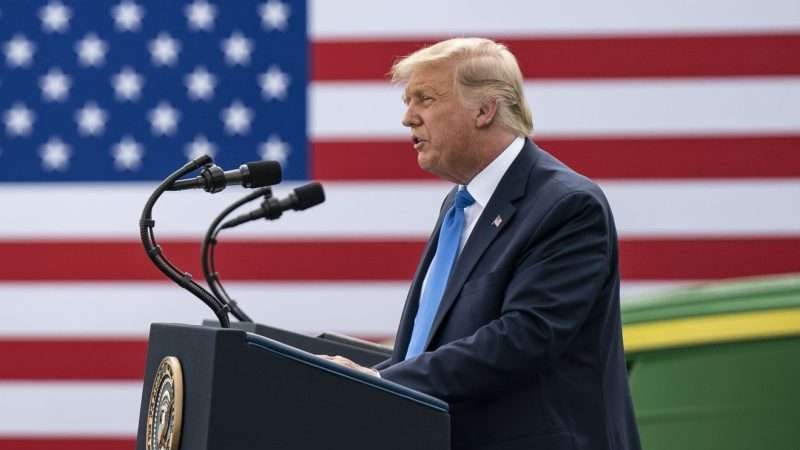
The Colorado Supreme Court ruled Tuesday that former President Donald Trump is ineligible to seek the presidency and ordered that his name be removed from the state's Republican primary ballot.
The court's reasoning has to do with a clause in the 14th Amendment that prohibits former officials who have engaged "in insurrection or rebellion against" the government from holding office, a provision originally intended to restrain former Confederates from seeking office after the Civil War. In a 4–3 ruling, the Colorado high court determined that Trump's role in instigating the January 6 riot at the U.S. Capitol was sufficient to bar him from the presidency.
"We are mindful of the magnitude and weight of the questions now before us," the majority opinion reads. "We are likewise mindful of our solemn duty to apply the law, without fear or favor, and without being swayed by public reaction to the decisions that the law mandates we reach."
This is, obviously, an unprecedented situation. It is unlikely to be the final word—the U.S. Supreme Court has the final say in constitutional matters, and Trump's campaign has already promised to appeal Tuesday's ruling.
Without knowing what the outcome of that appeal might be, there are three things worth keeping in mind about Tuesday's decision in Colorado—one practical, one philosophical, and one purely hypothetical.
First, this all seems a bit premature given that Trump has not yet been convicted of any crimes connected to the January 6 riot or his attempts to overturn the 2020 election. Yes, the former president is manifestly unfit for office, and the 14th Amendment's language is somewhat vague—but can someone be guilty of engaging in insurrection without being guilty of at least one actual crime related to it?
The Colorado Supreme Court says yes. I think we should be deeply skeptical of that logic. (Needless to say, the context here changes if Trump is convicted in either of the two election interference cases currently being brought against him.)
Second, let's assume that Trump's harshest critics are correct when they say he represents a unique threat to the future of American democracy. Even so, the idea of booting someone off the ballot to save democracy seems like a weird argument at best—and an authoritarian one at worst.
Yes, the 14th Amendment created a constitutionally valid mechanism for removing an insurrectionist from the ballot. That doesn't mean it's a lever that judges should be eager to pull. Not when there are other, far more democratic ways to prevent dangerous, unfit candidates from becoming president (like, say, by defeating them in open, fair elections), and particularly not when the candidate in question still hasn't been convicted of anything resembling insurrection.
Finally: What's the endgame here? President Joe Biden (or whomever the Democratic nominee turns out to be) is likely to carry Colorado whether Trump is on the ballot or not. Let's suppose courts in other blue states follow Colorado's example. Now he's missing from a bunch of states' ballots, but not ones that are likely to affect the election's outcome. What happens then?
In one scenario, Trump loses but his supporters are able to nurse a permanent grievance that the system wouldn't even let their guy compete. Not for the abstruse reasons that Trump's team tried to conjure up after the 2020 results came in, but because of something that's easy to understand and easy to see as a legitimate grievance.
In another scenario, Trump wins the Electoral College—remember, these states weren't likely to vote for him anyway—but with a far lower percentage of the popular vote. Indeed, the popular and electoral votes would be even more mismatched than in 2000 or 2016. In terms of democratic legitimacy, that outcome might be even worse for the future of the country.
But those are the two new possibilities that the Colorado's Supreme Court has opened with its ruling on Tuesday. All in all, that seems like a decision that will make things worse, not better.
The post Removing Trump From the Colorado Ballot Won't Make Things Better appeared first on Reason.com.







